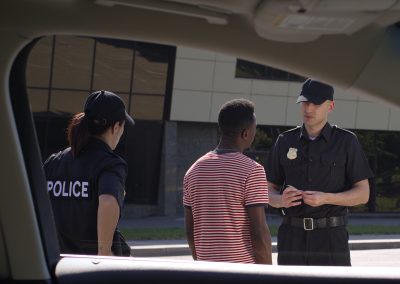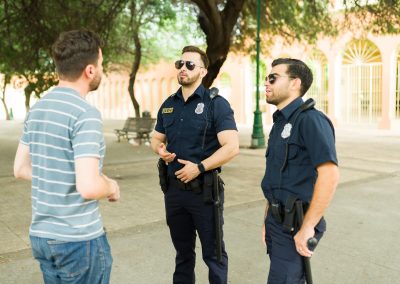Leadership speaker Scott Williams frequently characterizes his mentor and the influence he had on him early in his career with the acronym BECC: Believe, encourage, challenge and correct. His mentor believed in him at all times, encouraged him to be forward thinking, challenged him to take on more, and corrected him back on the right path when he made mistakes.
Those qualities and goals are desirable in any leadership position, and I believe they translate directly in to the world of field training.
BECC
Believe: Field training officers (FTOs) must believe in their officers in training (OITs). Modern FTO programs should be, by design, a supportive program and not a confrontational one. We must operate from the premise that every OIT will graduate their program, rather than trying to find a way to force them out of it. Some OITs may need more support, specialized training or remedial assistance. But the FTO has to have the core belief that the OIT will succeed, until administration makes a decision otherwise.
This can be difficult because FTOs can be influenced by the opinions of training officers at the academy, other FTOs, and the opinions of their peers. As trainers we need to be consciously aware of what we’re doing with the information we receive about trainees. Hearing that a trainee has a failure to recognize danger should be an opportunity to focus on remedial, scenario and intensive training and not an excuse to write them off as a loss. Field training programs should have a success-first attitude, bolstered by a team of trainers that maintain a confidence in their students.
Encourage: Encouragement must manifest itself in various ways throughout the length of the program. Early on, trainees should be encouraged to think about their future with the agency, set career goals and recognize that a their reputation in the agency begins with the field training program. OITs should be encouraged to try to handle new and unknown situations with as little input from their trainers as possible. We should encourage them to be open and honest with us after calls and contacts, knowing that the feedback we provide them, although sometimes negative, will provide them productive insight and attainable goals for the future. It’s up to trainers to reinforce the idea that even if the OIT isn’t meeting standards at the moment, a positive attitude, desire to progress, and acting on FTO feedback will continue to encourage rookies through difficult times in their program.
Challenge: Being an OIT isn’t easy! Throughout their FTO program, new officers will be challenged from all directions. Learning to adapt and immerse themselves within law enforcement culture, being asked to take command roles they may have never envisioned, engaging in physical confrontation, making potentially life altering decisions for strangers—and doing all of this while working within the confines of the Constitution, state and local laws, and their own policies. Exceptional trainers recognize the need for a constant ebb and flow of input, supervision, guidance, support, and direction throughout their time with a trainee.
OITs that are progressing quickly can be challenged by increased distance, both literal and figurative, from their FTO. Good communication among officers can allow new officers to arrive first on chaotic calls, granting them the opportunity to demonstrate command presence and conflict control. Experienced FTOs are continuously evaluating their trainee’s performance, and determining what skills and abilities they need to develop, and what specific training will challenge them so they don’t plateau.
Correct: Finally, correction is the core of the field training program. The previous three concepts could exist inside of any training program. But only in field training do we have the opportunity to see performance, correct missteps and errors, and then evaluate the progress. Any time feedback is provided and change is desired, a trainee should be provided the opportunity to demonstrate that skill or ability again.
Finding that opportunity is the trainer’s challenge. Most FTOs will find that OITs are akin to pendulums in the way that any direction from the training officer is taken to the other extreme. A request to be more assertive results in your trainee knocking on victim’s doors like he has a warrant. The trainer needs to recognize this, prepare for it, and be ready to correct the trainee from both ends of the spectrum, like bumpers in a bowling alley, until the trainee’s performance is in line with the trainer’s expectations.
Conclusion
FTOs across the country take on one of the most harrowing tasks in modern law enforcement: preparing young, inexperienced men and women for long illustrious careers as officers.
When officers, both new and seasoned, are asked about desired traits of field training officers, they consistently use terms like knowledgeable, patient, flexible, and supportive. Note: These adjectives describe character, rather than the skills and abilities of the training officer. Remembering to believe in your trainee, encouraging them through the training, challenging them with new situations, and correcting them to develop them in to successful officers will allow you to leave a legacy of positive training and earn the respect of your peers as a leader in your agency.










0 Comments